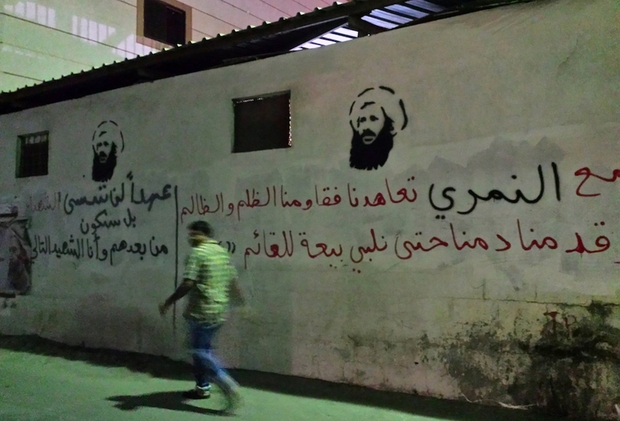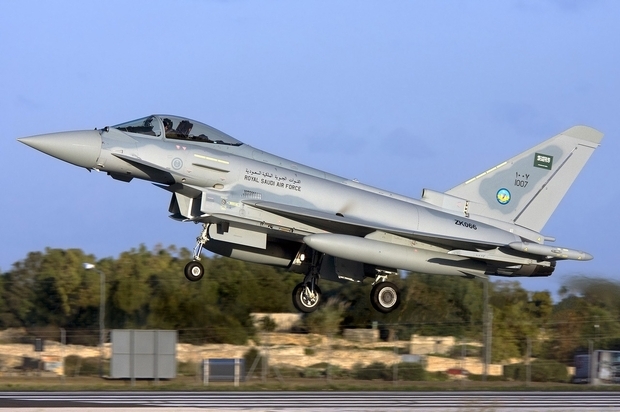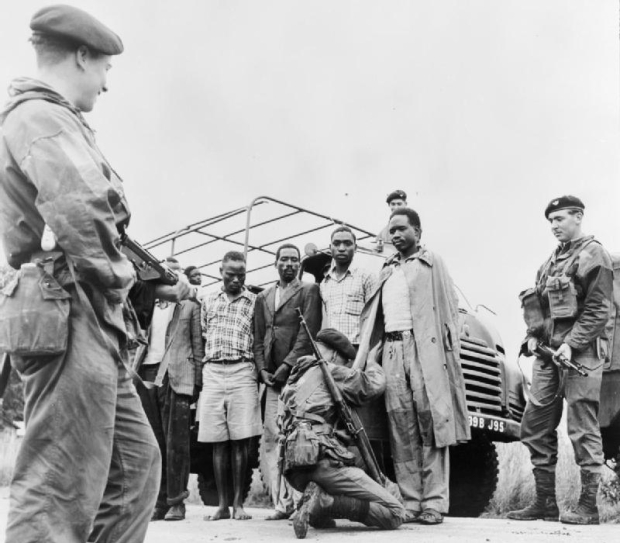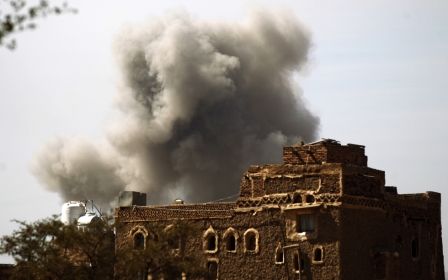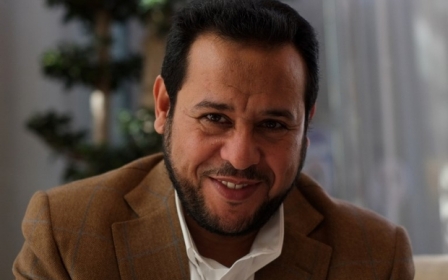Culture of concealment: The UK government's brazen duplicity in Yemen
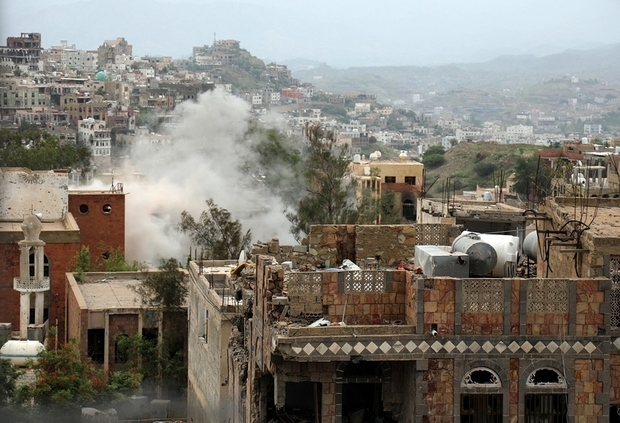
Last month, on the last day of the current UK parliamentary session before its summer recess, a particularly obnoxious new British tradition called "take out the trash day" was enacted.
The UK government is obliged to issue all its public reports before the end of the parliamentary year, but to avoid scrutiny from MPs, the government now regularly withholds any potentially embarrassing reports until the very last day of that session. It can then release them safe in the knowledge that there will be no time left for MPs to examine them, and no opportunity to question ministers over them.
What makes the report embarrassing to Britain, however, is that 20 of these countries of priority concern are major customers of British arms exports, with Saudi Arabia, of course, topping the list
So having issued very little information over the preceding weeks, as MPs were heading back to their constituencies, the government took the opportunity to release dozens of reports and ministerial statements detailing everything from cuts to police, to the revolving door between cabinet ministers and private corporations, to the millions in legal fees the government spent attempting to prevent parliamentary scrutiny of Brexit.
Buried deep among them was a Foreign Office report on the state of human rights in 30 countries deemed to be of "priority concern". What makes the report embarrassing to Britain, however, is that 20 of these countries are major customers of British arms exports, with Saudi Arabia, of course, topping the list.
The Saudis, whose mass executions, public lashings and restrictions on women's rights are all detailed in the report, increased their UK weapons purchases from Britain by 11,000 percent following the start of their bombing campaign against Yemen in March 2015, and have purchased more than £3.3billion worth since then.
Those weapons have played a major role in pushing Yemen to its current catastrophic situation, facing the fastest-growing cholera epidemic since records began, with seven million people on the verge of famine. No wonder the UK does not want to draw attention to what is being facilitated by its relationship with the Saudis. It is right to be ashamed.
Up to its neck
As well as downplaying Saudi atrocities, however, we also learned on dump day that the UK government has been exaggerating its aid contribution to Yemen. In the most recent Commons debate on Yemen on 5 July, International Development Minister Rory Stewart gave a figure that was inflated by 30 percent. His department used "take out the trash day" to issue a correction to that figure, presumably expecting that no one would notice.
In that, they seem to have been correct: I have been unable to find a single press report mentioning it. But perhaps misleading parliament about Yemen no longer qualifies as news - after all, it seems to have become standard practice for ministers.
Britain is up to its neck in Yemen: it is the major supplier of the bombs dropped on Yemen, and of the jets used to drop them; it provides diplomatic cover to the Saudis; it supports the starvation blockade of the country
By early 2016, with atrocities mounting in Yemen - such as air strikes against three Medicins Sans Frontiers hospitals in as many months - some MPs began challenging the government’s policy, concerned in particular that British weapons were being used to carry out war crimes.
Every time he was questioned on the issue, however, then-UK foreign secretary Phillip Hammond insisted, in the face of copious evidence, that "we have assessed there has not been a breach of international humanitarian law by the coalition".
This claim, or variations of it, was repeated by ministers to parliament six times. But then, on "take out the trash day" 2016, the Foreign Office effectively admitted that they had misled parliament. What Hammond should have said, the FCO said in the six "corrections" they issued, was that "we have not assessed that there has been a breach of international humanitarian law by the coalition".
And that was because such an assessment - an assessment the government had been claiming all year to have carried out and which exonerated the Saudis - had never been made.
Britain is up to its neck in Yemen: it is the major supplier of the bombs dropped on Yemen, and of the jets used to drop them; it provides diplomatic cover to the Saudis (such as repeatedly blocking an independent investigation into Saudi war crimes); it supports the starvation blockade of the country; it provides training and logistical assistance to the Saudi armed forces; and it has 125 soldiers stationed in Saudi Arabia, including six officers based in the Saudi command and control HQ "assisting with target selection".
Indeed, Britain may well have officers embedded in the Saudi army itself, given 2015’s "take out the trash day" admission that Britain has 177 military personnel embedded within the armed forces of several other, undisclosed, countries.
Yet ministers continue to mislead parliament in claiming Britain is "not a party" to the war in Yemen. As Mark Curtis, a historian and analyst of UK foreing policy and international development, has noted, this line was even repeated on the very day the British government disclosed that the Saudis used five different types of British bombs and missiles on Yemen.
The brazenness of the UK’s deception about its role in Yemen is underpinned by a tight secrecy which it hopes will prevent most of its duplicity ever being discovered.
Secrets all around
Britain’s relations with Saudi Arabia have always been kept as obscure as possible, with the government regularly suppressing its own investigations and reports into the matter; the current refusal to release a Home Office report on terrorism funding lest it embarrass the Saudi and British governments has many precedents.
In 2006, Tony Blair personally shut down the Serious Fraud Office investigation into a billion-pound bribery case involving BAE Systems and a Saudi prince, on the grounds it could endanger "national security". And in 2014, Theresa May signed a secret "memorandum of understanding" with then Saudi crown prince Mohammed bin Nayef which the UK has consistently refused to make public. This was just months before the British-Saudi war on Yemen was unleashed.
When the truth does come out, government ministers see it as their job to try to rubbish it
Secrecy surrounds every aspect of Britain’s Yemen operation. It was the Saudi foreign minister, not the UK, who admitted to the stationing of British officers in his country’s command and control centre. The government has refused to provide details of its export licences to Saudi Arabia. And the government informed neither public nor parliament of its decision to send the Royal Navy’s most advanced warship, HMS Daring, to the coast of Yemen last November, essentially to help shore up the blockade.
When the truth does come out, government ministers see it as their job to try to rubbish it. In January 2016, for example, then-Middle East minister Tobias Ellwood, responded to a UN report documenting more than 100 coalition air strikes which violated international law by claiming they had been either “mistakes” by the Saudis or, astoundingly, that they had been “fabricated” by the “media-savvy” Houthis.
But, as journalist Ian Cobain has thoroughly documented in The History Thieves: Secrets, Lies and the Shaping of a Modern Nation, this culture of secrecy and deception is deeply rooted in British political life - and nowhere more so than the Foreign Office.
Legacy of hiding
In 2001, a group of elderly Kenyans began the process of taking the British government to court over their treatment. All of them alleged that they had been tortured by the British during the Mau-Mau rebellion of the 1950s.
Writes Cobain, “If the old people were telling the truth, hundreds of thousands of Kikuyu, the country’s largest ethnic group, had been incarcerated by the colonial government, abused, tortured, and not infrequently raped... [Jailers] had beaten inmates to death, and even burned men alive.”
The Foreign Office had lied about not holding any relevant files; in fact, they finally admitted, they were indeed holding 1,500 files on the last days of British rule in Kenya
Yet the official documentation in Kenya seemed to be almost entirely lacking in anything covering the treatment of prisoners - and when the judge in the trial ordered the Foreign Office to disclose all relevants, they claimed they had nothing other than what was already held in the Kenyan archives. This was strange, as the colonial authorities had been meticulous record-keepers. Someone, it seemed, was not telling the truth.
Stories had long circulated of huge wooden crates being removed from the Kenyan archives to be flown to Gatwick nine days before independence. And then, during the trial, Oxford historian David Anderson introduced a 40-year-old Foreign Office minute which suggested the Foreign Office were withholding around 1,500 files on Kenya which had never been disclosed. That was when the Foreign Office came clean.
They had lied about not holding any relevant files; in fact, they finally admitted, they were indeed holding 1,500 files on the last days of British rule in Kenya. Once these were handed over, they immediately corroborated all the Kenyans’ allegations; as Cobain wrote, the files “detailed the way in which suspected insurgents had been beaten to death, burned alive, raped, castrated - like two of the High Court claimants - and kept in manacles for years. Even children had been killed.” The government settled the case and paid £20m ($26m) compensation to 5,228 claimants.
'Orgy of burning'
The case had led to the discovery of an epic cover-up. For it soon emerged that it was not only from Kenya where documents had been secretly removed. Following an instruction issued by the British colonial secretary Iain Macleod on 3 May 1961, a massive operation of file-destroying and removal had been initiated across the entire British Empire. All files that could potentially embarrass the British government were ordered to be destroyed or removed to London - and almost 9,000 such files, the government admitted in 2011, from 37 former colonies, were still being secretly held in Hanslope Park, 40 miles north of London.
A historian established that the true number of secret files was in fact more than 20,000. Yet even these ‘purged’ files had clearly themselves been purged
The government said it would clear the files for declassification and transfer them to the national archives, and appointed Cambridge historian Tony Badger to oversee the process. He established that the true number of secret files was in fact more than 20,000. Yet even these @purged" files had clearly themselves been purged. The Yemen files were particularly thin on the ground: Aden, which had seen a four-year long rebellion repressed with vicious brutality immediately prior to independence, had just five boxes.
And when these were opened, writes Cobain, “it was found that half the files inside were personnel records of law ranking officials, while most of the remaining papers concerned agriculture”. This was not surprising, given what we now know from British civil servants in Aden, who have described what one called an “orgy of burning”.
The files sent to London were, he wrote, “severely weeded”, such that “details of tribal affrays, secret counter-insurgency operations funded out of the code-worded money bags...and many examples of less sensitive ‘keeni meeni’ are all gone, and are not duplicated elsewhere”. Keeni Meeni is the Swahili term for the "slithering of a snake". It is an apt description for this entire episode of empire white-washing, indeed, for the whole operation of British imperialism, both then and now.
Behind closed doors
In truth, British foreign policy has always been a matter decided behind closed doors, with public and parliament informed as little as possible, and consulted even less. Cobain explains how Britain’s 11-year war in Oman, begun in 1965, was not even publicly admitted until 1972, with ministers lying about the situation to parliament almost compulsively, and journalists barred from entering the country at all.
He also notes how Britain’s unique system of media self-censorship - enforced by the infamous D notice committee - which covers almost all aspects of war reporting, today results in an estimated 80-90 percent of all relevant news reports being submitted to the committee before publication. This is an amazing level of government control of information about its wars, covert or otherwise.
Moreover, we now know that the 20,000 secret files from "Operation Legacy’ were but the tip of the iceberg: the Foreign Office is, it has recently been discovered, actually holding at least 170,000, and possibly up to 1.2 million secret files, dating back to 1662 and taking up 15 miles of floor-to-ceiling shelving.
The Foreign Office has clearly never considered itself to be bound by the various Public Records Acts which supposedly make official documents accessible to all.
In 1971, former Cabinet minister Richard Crossman claimed that "secretiveness is the real English disease and in particular the chronic ailment of British government” - and that it “ensures that the House of Commons is the worst informed legislature in the world". Today’s war in Yemen shows he remains dismally right.
- Dan Glazebrook is a political writer specialising in Western foreign policy. He is author of Divide and Ruin: The West's Imperial Strategy in an Age of Crisis. He is currently crowdfunding to finance his second book.
The views expressed in this article belong to the author and do not necessarily reflect the editorial policy of Middle East Eye.
Photo: Smoke rises from an air attack in Taiz earlier this month (AFP)
Middle East Eye propose une couverture et une analyse indépendantes et incomparables du Moyen-Orient, de l’Afrique du Nord et d’autres régions du monde. Pour en savoir plus sur la reprise de ce contenu et les frais qui s’appliquent, veuillez remplir ce formulaire [en anglais]. Pour en savoir plus sur MEE, cliquez ici [en anglais].



